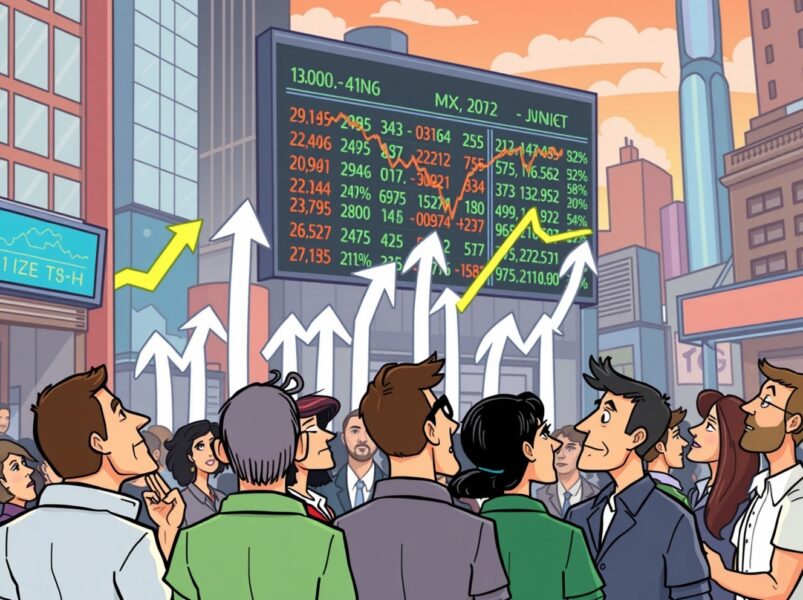Bitchat downloads spike in Madagascar during protests
Jack Dorsey’s decentralized messaging app Bitchat has recorded a surge in Madagascar following the ongoing protests over water and power shortages. The ongoing demonstrations arose on Thursday last week, accompanied by the dismissal of the energy minister and an imposed dusk-to-dawn curfew.
Bitchat, a peer-to-peer messaging app, has seen increased downloads following protests in Madagascar. The U.S. Embassy in Madagascar shared a demonstration alert message as demonstrators clashed with police and looted. The government responded by sacking the energy minister and imposing a dusk-to-dawn curfew to quell unrest.
Bitchat search hit pick popularity amid unrest in Madagascar
According to Google Trends data, Bitchat searches increased from 0 to 100 on Friday, with Antananarivo, the capital city, leading search activity. The data highlighted queries such as Bitchat download and how to use Bitchat, among the top five related searches flagged as related topics.
Chrome-Stats showed that Bitchat had been downloaded 365,307 times since the beta launch in July, with 21,000+ downloads in the past 24 hours and more than 71,000 in the past week. Google Trends specified regional breakdowns highlighting that Madagascar was the main driver of the latest surge.
Bitchat has been designed to enable peer-to-peer communication via Bluetooth mesh networks. It allows users to exchange messages without internet access or centralized servers. It also does not require an account, email address, or phone number, making it the preferred solution for avoiding monitored networks.
In early September, Bitchat downloads skyrocketed in Nepal after the government banned at least 26 social media platforms, including Facebook and WhatsApp, due to widespread protests over corruption. Downloads for the application jumped from 3,300 to 48,000 in just a week, making the app the primary coordinator for protestors. At least 34 people died in the Nepal demonstration crisis, with the resignation of the country’s Prime Minister K.P. Sharma Oli following.
Indonesia also saw a surge in Bitchat app downloads during the protests against parliamentary allowances earlier this month. More than 11,000 downloads were recorded. Citizens opted for the app to avoid being monitored while coordinating the demonstrations.
Madagascar has low internet penetration, further increasing the need for a decent offline application in times of crisis. DataReportal showed that the country has nearly 32 million people, but only about 6.6 million had access to the internet by the start of 2025. At least 18 million devices had active mobile connections, but many only utilized voice and SMS services without internet access. Bitchat’s Bluetooth mesh functionality allowed users within a 300-meter radius to communicate, offering a rare opportunity in areas with limited network coverage.
Privacy-focused and censorship-free technologies continue to gain adoption, especially in areas experiencing physical unrest. Such decentralized platforms offer alternative communication tools when access to Mainstreet social media or mobile internet is restricted.
Crypto advocates say EU bill could drive adoption of decentralized tools
Regulatory efforts in other parts of the world have raised concerns over tools with similar features to Bitchat. In the European region, a Chat Control bill has been proposed seeking to mandate pre-encryption scanning of messages. The law would undermine encrypted messaging, requiring platforms such as Telegram, WhatsApp, and Signal to allow regulators to scan messages before they are encrypted and sent.
Diode CEO Hans Rempel and Brickken’s Elisenda Fabrega, a crypto advocate, have predicted that the proposal may point users towards decentralized Web3 platforms designed for privacy by default.
Currently, the bill has support from 15 EU member states, which is still lower than the 65% population threshold required to pass it into the next stage. Germany, holding the pivot role, has yet to decide on the law; if the country votes in favor, the bill is expected to pass, while the opposite may see the bill fail.
Bitchat’s adoption in Madagascar’s protest, Indonesia, and Nepal has highlighted how quickly decentralized communication tools may gain adoption in unstable environments.
If you're reading this, you’re already ahead. Stay there with our newsletter.
You May Also Like

Developers of Altcoin Traded on Binance Reveal Reason for Major Price Drop – “Legal Process Has Begun”

Gate Alpha is launching its 113th round of points airdrops. Holders of the corresponding points can be among the first to receive 0.9 or 4.5 TRUMP.
